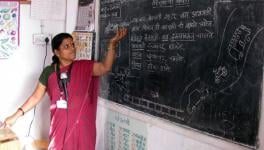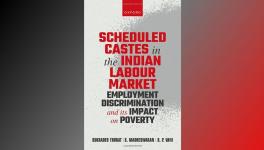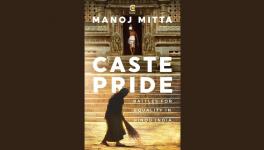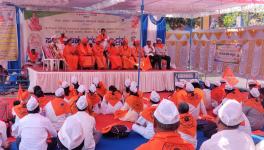Basavanna – A Man Who Rebelled Against Sanatana Tradition
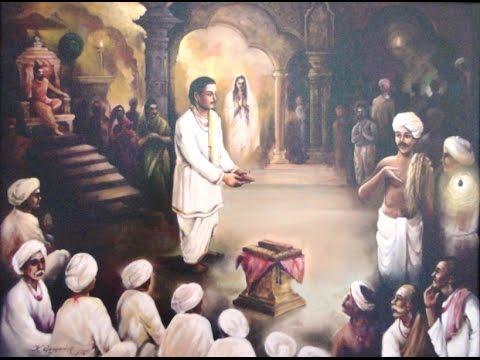
Image Courtesy: Youtube
A woman saint-poet, a contemporary of Basavanna called Urilinga Peddigala Punya Stri Kalavve, critiqued the orthodox Brahmanical traditions and the caste system. “The Hindu religion, which stands on the foundation of the caste system,” she wrote, “distinguishes people according to what they eat. Those who eat chicken, sheep and fish are considered middle castes. Those who eat beef are considered outcastes, since the cow is believed to have given panchamrita to Shiva.” It was the sharana movement — a dramatic development led by Basvanna and others in erstwhile Karnataka — that gave a dalit woman poet like Kalavve the confidence to be be a rebel. The sharana movement enabled people from the lower rungs of society to raise their voices against the dominant caste structures.
In our own times, the words of Urilinga Peddigala Punya Stri Kalavve act like an axe to hit at the roots of Manuvadi, and the constant discrimination against dalits and minorities in the name of cow slaughter. The sharana period, and its ideas of equality, still have much to say to us.
The sharana movement encouraged equality, brotherhood and free thinking. It was revolutionary: people of the working class got together to fight for equality, and against inhuman caste and gender discrimination. They created awareness about superstition by propagating reason. Most of all, the mass movement created by Basavanna and aimed at the root of exploitation by opposing the sanatana traditions of the Brahmins.
Basavanna was, perhaps, the first person in the world who wrote about the novel and revolutionary idea that work is worship. He organized people from the lowest strata of the society to realise this worthy objective. This leader of the working class became a saviour of the people who had been suffering for centuries. He worked hard to spread the concept of one God. He emphasized the importance of education and insisted on gender equality.
To the orthodox Brahmins who said a person was born untouchable because of the karma of the sins committed in previous births, Basavanna said, “Look at the houses of the poor, all the sharanas of Koodala Sangama are champions of self-respect.” This is how he motivated the exploited to strive for self-respect. Basavanna was a pioneer in making people aware of political consciousness, and ideas like equality and freedom.
Again, the sharana movement has a lesson for us about freedom of expression – at a time when free speech and dissent are being curbed. Basavanna built an “Anubhava Mantapa”, a platform to express views without caste and gender prejudice. Basavanna handed over leadership to the oppressed castes. The Anubhava Mantapa consisted of 770 sharanas, something like the first parliament in the world. Allama Prabhu, a dalit, propagated the philosophy ‘attainment of nothingness’ was like the Speaker of this parliament, which included women saints such as Akkamahadevi, Gangambike, Neelambike, Sule Sankavva, Dhanamma, Kalyanavva and Aydakki Lakkamma, and others such as Dohara Kakkayya, Ajaganna, Kurubara Bommanna, Holeyara Boganna and Madhuvarasa. All of them, women and men, participated in the discussions on the welfare of the people.
Basavanna introduced an adult education system which led many people from the lower castes to become writers – vachanakaras or writers of vachanas. This led to a boom in literary production; more important, it proved that knowledge did not brook discrimination. These vachanas could be considered the first writings produced by dalits and other lower castes, as well as women.
But a shocking development was in store for the sharana movement. Hundreds of them were hounded and butchered for having thought of, and put into practice, a movement against inequality and human rights violations. One instance of the sharana practice of equality was a marriage arranged between the son of the dalit Haralayya and the daughter of the brahmin Madhuvarasa. As Haralayya’s son Sheelavanta and Madhuvarasa’s daughter Lavanyavati had become sharanas, there should have been no obstacle such as caste keeping them from marrying each other. But Manuvad did not want this marriage to take place. The conservative Brahmins argued that this marriage was against Hindu tradition and Rajadharma which would eventually lead to destruction of the empire. The conflict was between people who firmly believed in caste hierarchy and who did not. The noteworthy point here is that the sharanas were even ready to sacrifice their lives to fight against the cruelty of Manuvad.
The sharanas decided to face whatever came their way, saying, “Let what is likely to happen in the far future happen now, and what might transpire the next day, let it happen this minute.” Although King Bijjala and the brahmins opposed the inter-caste marriage, the sharanas went ahead with the inter-caste marriage despite death threats. Enraged, the brahminsplucked out the eyes of the sharanas and tied them to the legs of elephants to be dragged along the streets. Then the Sharanas were trampled to death by the elephants. Other sharanas were beheaded and cut into pieces, such was the hatred and cruelty of the “Hindutva elements” of the time. The sharanas martyrs died for the sake of a secular marriage. The remaining sharanas went into exile to save the vachanas.
Literary critic and historian Ramzan Darga notes, “This movement which fought for human dignity on the basis of an idea of ‘one path, one tone’ witnessed the worst killings in history.” He adds, “The counter protest by Manuvadi-s which halted the revolution led by Basavanna and other Sharanas was a huge setback for humanity.”
While anyalysing caste, Babasaheb Ambedkar writes that “Buddha’s revolution was followed by the Brahmin’s counter attack. This led to the spreading of the roots of the caste system helping spread the cruelty of inequality everywhere.” It is a well documented disaster in history that the Kalyana revolution was followed by a counter-protest by Brahmins. Anyway, one should not forget the fact that the revolutionary event of inter-caste marriage was symbolically against the caste system. It is also quite evident that Basavanna and other sharanas addressed the core issues of people’s livelihood.
The sharanas’ struggle against caste structures through their vachanas is still remembered by the lower castes. In recent times, people belonging to the Lingayat caste project Basavanna as their leader. It is shameful that few self-proclaimed followers of Basavanna glorify Hindu gods by making use of Basavanna’s ideas. There have been thousands of mata-s built in the name of Basavanna. These have become centres for business. Followers of Manu are against the demand of a separate Lingayat religion. Lingayat leaders have been misled since they have joined hands with the Sangh parivar.
M.M. Kalburgi, who wrote the play “Kettithu Kalyana” (Destruction of Kalyana) based on the killings of Sharanas in the twelfth century, was killed by the Hindu extremists. Similarly, Gauri Lankesh was murdered for spreading rational thought. The followers of Basavanna should worry deeply about the growth of the Sangh Parivar, and the growing intolerance which has led to the killing of progressive writers.
Every Indian should understand that the Indian constitution is replete with the ideas of Basava and his followers. It is the need of the hour to come forward and support these voices to uphold human dignity. We have to try build afresh, for our own times, the Kalyana revolution.
Huchangi Prasad is a Kannada writer and activist. He currently teaches at the Government First Grade College, Devanagere, Karnatka. He is also the recipient of the 2019 Indian Writers Forum Young Writers Stipend.
Get the latest reports & analysis with people's perspective on Protests, movements & deep analytical videos, discussions of the current affairs in your Telegram app. Subscribe to NewsClick's Telegram channel & get Real-Time updates on stories, as they get published on our website.









